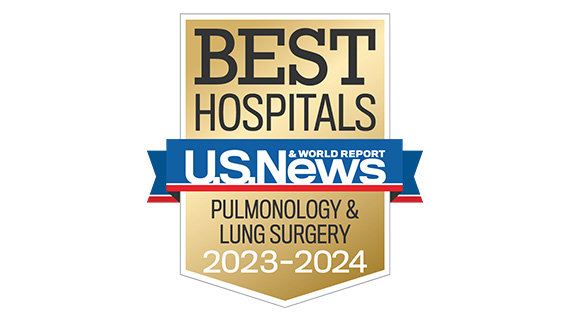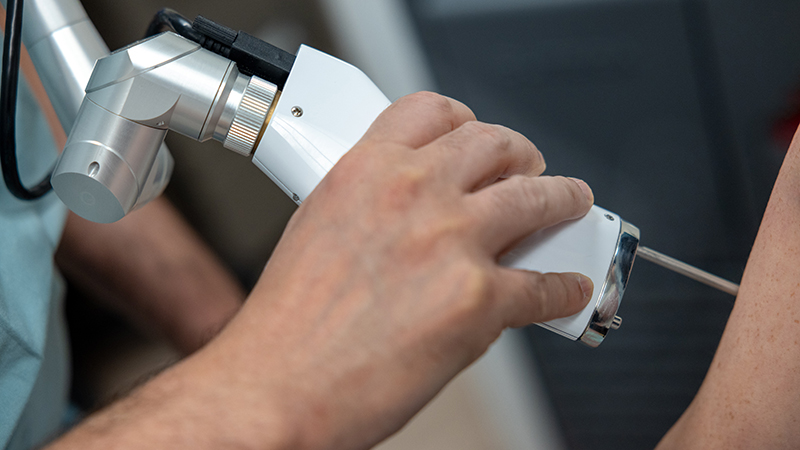Overview
What Is Lung Transplantation?
Lung transplantation is the replacement of a diseased lung with a healthy lung from an organ donor, with the goal of improving the recipient’s quality of life.
While lung transplant is not a cure for lung disease, it has been shown to have an impressive record in prolonging life among patients with end-stage lung disease: 50 percent of patients live another five years, and 20 percent live another 10 years.
Lung transplantation may involve:
- Single lung: Just one lung is replaced.
- Double lung: Both lungs are replaced.
- Bilateral sequential: Both lungs are replaced, but at different times.
- Heart-lung transplant: The patient receives both a new heart and new lungs from a single donor.
As with all transplants and major surgeries, lung transplantation carries some risks, including:
- Infection
- Bleeding
- Blood clots
- Airway blockage
- Pulmonary edema (fluid in the lungs)
- Rejection of the new lung
Advanced treatments for severe lung disease
Our multidisciplinary team* of lung transplant physicians are experienced in all manner of advanced lung disease. While waiting for a donor lung, or when a lung transplant is not a viable option, the team provides these innovative services:
- Lung volume reduction: Thoracic surgeons remove small wedges of damaged lung tissue in order to help the remaining lung tissue function more efficiently. This can improve the quality of life in COPD patients.
- Interventional bronchoscopy: An interventional pulmonologist can use this technique to perform bronchial dilatations, stent placement and endobronchial laser procedures to alleviate symptoms.
- Extracorporeal membrane oxygenation (ECMO): An innovative device is used as a “stopgap” for lengthening a candidate’s life until a transplant has been found. It provides direct oxygenation and allows the patient to move, eat and even gain strength. (By contrast, traditional ventilators can damage lungs by pushing air into them.)
Looking toward the future, other innovations are in development:
- Ex vivo lung perfusion: This experimental option, not yet approved by the FDA, may lead to better ways to keep lungs (the most fragile of organs) stable during transplant. Northwestern Memorial Hospital is ready to become one of the clinical trial centers.
- Genomic studies and immunosuppression research: These studies will ultimately provide more successful lung transplant outcomes.






